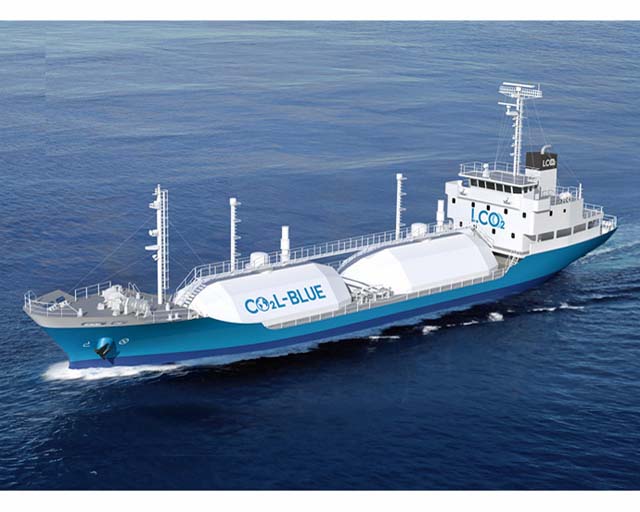Mitsubishi Shipbuilding, a Yokohama-based member of Mitsubishi Heavy Industries (MHI) Group, has concluded a contract with Sanyu Kisen, a Kobe-based enterprise principally engaged in management of ships navigation in Japanese as well as foreign waters, calling for the construction of a demonstration test ship to transport liquefied carbon dioxide (LCO2).
The demonstration ship will be 72m long, with a tank capacity of 1450m2. The project is aligned with initiatives of the New Energy and Industrial Technology Development Organization (NEDO) in its ‘CCUS R&D and Demonstration Related Project / Large-scale CCUS Demonstration in Tomakomai / Demonstration Project on CO2 Transportation / R&D and Demonstration Project for CO2 Marine Transportation’. Construction will get underway at the Enoura Plant of MHI’s Shimonoseki Shipyard & Machinery Works, with completion and delivery scheduled for the second half of 2023.
The Engineering Advancement Association of Japan (ENAA), will charter the ship from Sanyu Kisen, the subcontractor. Under consignment from ENAA, three additional project partners – Kawasaki Kisen Kaisha (‘K’ Line), Nippon Gas Line, and Ochanomizu University – will accelerate R&D of the LCO2 transportation technology and contribute to cost reduction of CCUS technology and safe, long-distance and large-scale transportation of LCO2.
Although ships to carry LCO2 have previously been constructed and operated in Europe and Japan, the new ship is expected to be the world’s first LCO2 carrier intended specifically for CCUS. Mitsubishi Shipbuilding will be in charge of all aspects from the ship design through construction, including the cargo containment system, applying its gas handling technologies and experience of construction of liquefied gas carriers (both LPG and LNG types).
CCUS is garnering attention today as an effective means of achieving a carbon-neutral society. Because CO2 emissions sites are often located distant from the sites selected for carbon utilisation or storage, demand is expected to increase for LCO2 carriers which can transport cargo safely and economically.
Mitsubishi Shipbuilding has set itself two overarching targets: decarbonisation through innovative technologies in maritime industry such as use of renewable energies and carbon recycling, and effective use of ocean spaces through autonomous operation and electrification.



